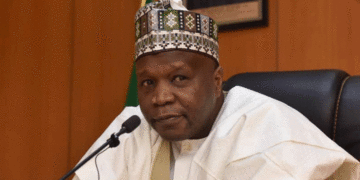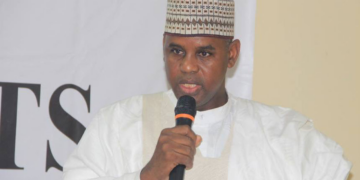Amid widespread dissatisfaction over the recent hike in fuel prices, an advocacy group, the Independent Media and Policy Initiative (IMPI), has endorsed a market-determined fuel pricing system.
The group also defended the removal of fuel subsidies and the shift towards a free-market economy.
Fuel prices have surged, ranging from N850 per liter at Nigerian National Petroleum Company Limited (NNPCL) stations to N1,200 per liter at independent stations.
The development has reignited long-standing debates on fuel pricing, with critics blaming the federal government for the economic strain on citizens.
However, speaking to journalists in Abuja yesterday, IMPI chairman, Niyi Akinsiju noted that the current economic reality, including the fiscal burden of fuel subsidies has made their continuation unsustainable.
He argued that only market-determined petrol pricing can unlock the potentials and capabilities of the Nigerian nation and its people.
According to him, the subsidy spending has strangled critical sectors like infrastructure, health and education.
Akinsiju also criticised the Nigeria Labour Congress (NLC) for its opposition to market-driven pricing, and argued that the current subsidy regime largely benefits wealthier Nigerians, while lower-income households have already been paying market prices for alternative fuels like kerosene.
He urged the NLC and the public to embrace the Petroleum Industry Act (PIA), which mandates market-determined pricing as the key to unlocking Nigeria’s economic potential, particularly in the midstream and downstream sectors.
Despite ongoing public frustration, the IMPI believes that the only path to sustainable economic growth lies in a liberal free-market economy, where private investment drives development, and resources are channeled toward critical sectors.
He said, “The NLC must shift its focus toward advocating for Nigeria’s growth as a petroleum refining hub in Africa and pushing for the adoption of cleaner, cheaper energy sources like Compressed Natural Gas (CNG).
“Our appeal to labour and all Nigerians of good conscience is to actively engage the government in channeling resources that would have been funnelled into the ruinous subsidy to developing the health and educational sectors and providing functional infrastructure that makes businesses grow”.











